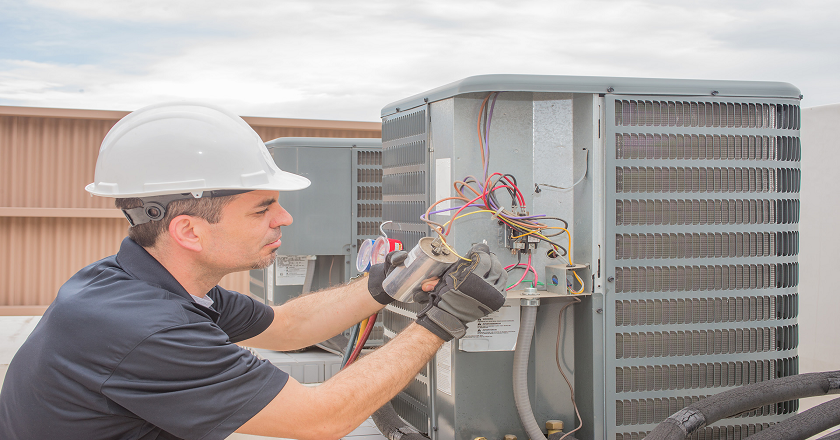Heat pumps play a pivotal role in providing efficient heating and cooling solutions for both residential and commercial spaces. These systems, however, require regular maintenance to ensure optimal performance, reliability, and energy efficiency. In this article, we will delve into the importance of heat pump maintenance, exploring the benefits it offers in terms of extending the lifespan of the system, reducing energy consumption, and enhancing overall reliability.
The Basics of Heat Pump Operation
Before delving into maintenance practices, it’s essential to understand how heat pumps operate. Heat pumps are versatile systems that can both heat and cool spaces by transferring heat between the indoors and outdoors. They work by extracting heat from the air or ground and transferring it to the desired location. This process makes them highly energy-efficient, as they don’t generate heat but rather move it.
Importance of Regular Maintenance
-
Extended Lifespan: Regular maintenance is akin to providing healthcare for your heat pump. Just as routine check-ups can identify potential health issues in humans, regular maintenance can catch potential problems with your heat pump before they escalate. This proactive approach helps in extending the lifespan of the system, ultimately saving you money on premature replacements.
-
Optimized Performance: A well-maintained heat pump operates at its peak efficiency. Dust, debris, and other contaminants can accumulate on the coils and filters, hindering the system’s ability to transfer heat effectively. Routine maintenance, including cleaning and filter replacement, ensures that the heat pump can perform optimally, providing consistent and reliable heating or cooling.
-
Reduced Energy Consumption: An efficient heat pump translates to lower energy bills. When the system is clogged with dirt or its components are not functioning correctly, it has to work harder to achieve the desired temperature. This increased workload leads to higher energy consumption. Regular maintenance ensures that the heat pump operates efficiently, reducing energy consumption and saving you money in the long run.
Key Maintenance Practices
-
Filter Cleaning/Replacement: One of the simplest yet most crucial maintenance tasks is cleaning or replacing the filters regularly. Clogged filters restrict airflow, forcing the system to work harder. This not only reduces efficiency but can also lead to increased wear and tear on the components. Depending on the type of filter, it is generally recommended to clean or replace them every one to three months.
-
Coil Cleaning: The coils in a heat pump can accumulate dirt over time, affecting the system’s ability to transfer heat. Regular coil cleaning is essential to maintain optimal heat exchange. Outdoor coils, in particular, are susceptible to dirt and debris. Ensuring that these coils are clean allows for efficient heat absorption or dissipation.
-
Inspecting Refrigerant Levels: Proper refrigerant levels are crucial for the heat pump’s operation. Low refrigerant levels can lead to reduced efficiency and potentially damage the compressor. Regular inspections and, if necessary, topping off refrigerant levels should be part of the maintenance routine. Any signs of refrigerant leaks should be addressed promptly.
-
Checking Thermostat Calibration: A thermostat that is not calibrated correctly can lead to temperature discrepancies and increased energy consumption. Regularly checking and calibrating the thermostat ensures that the heat pump operates at the set temperature, preventing unnecessary energy usage.
-
Inspecting Ductwork: Leaks or blockages in the ductwork can significantly impact the efficiency of the heat pump. Periodic inspections of the ductwork, along with repairs or cleaning as needed, can help maintain proper airflow and ensure that conditioned air reaches its intended destination without unnecessary losses.
-
Lubricating Moving Parts: The various components of a heat pump have moving parts that may require lubrication. This simple yet crucial step can prevent friction, reduce wear and tear, and contribute to the overall smooth operation of the system.
Conclusion
In conclusion, heat pump maintenance is a key factor in ensuring the longevity, reliability, and energy efficiency of these versatile heating and cooling systems. Regular tasks such as filter replacement, coil cleaning, refrigerant level checks, and thermostat calibration can go a long way in preventing issues, reducing energy consumption, and saving money on operational costs. By investing in routine maintenance, users can enjoy the full benefits of their heat pumps, creating a comfortable indoor environment while minimizing their environmental footprint. Remember, a well-maintained heat pump is a reliable and energy-efficient heat pump.


